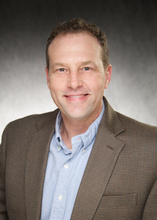
Noah Butler, PhD, associate professor of microbiology and immunology in the University of Iowa Carver College of Medicine, has been appointed to the Mark Stinski Professorship in Immunology.
Noah Butler, PhD, associate professor of microbiology and immunology in the University of Iowa Carver College of Medicine, has been appointed to the Mark Stinski Professorship in Immunology.
Butler, who earned a PhD in immunology and completed a postdoctoral fellowship in microbiology at Iowa, joined the Department of Microbiology and Immunology faculty in 2017.
His research focuses on understanding how the function of Plasmodium parasite-specific B cells and T cells are regulated during malaria. Butler and his research colleagues use this information to identify and develop new strategies to improve immunity against malaria, which affects hundreds of millions of people worldwide each year.
As a mentor, Butler has counseled many undergraduate, graduate and PhD students, and he has also served on the thesis committee for over two dozen students. He plays a significant role in leading two National Institutes of Health (NIH)-funded training grants as co-director of the Interdisciplinary Immunology Postdoctoral Training Program and one of three co-principal investigators and co-directors of the Training Program in Mechanisms of Parasitism. These programs have offered students the opportunity to be involved in groundbreaking research under Butler’s leadership.
Butler is also a sought-after speaker for research seminars and national symposia. Earlier in 2021, he spoke at the Bill and Melinda Gates Malaria Workshop—a testament to his national recognition in the field of microbiology and immunology.